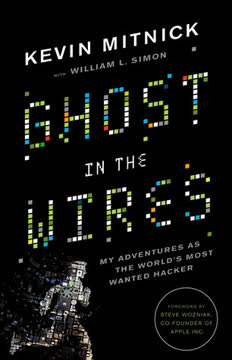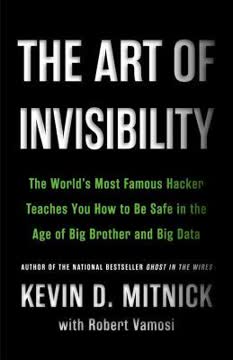Key Takeaways
1. The Birth of Digital Counterculture: Hacking as a Form of Rebellion and Expression
"We were like a sperm donor. We strongly influenced the operation in the beginning and then left. It was our DNA, but that's about it."
Digital Underground Roots. The early hacking community emerged as a rebellious subculture, driven by curiosity, anti-establishment sentiment, and a desire to understand technological systems. Born in the pre-internet era of bulletin board systems, these hackers were more interested in exploration and communication than malicious destruction.
Characteristics of Early Hacking Culture:
- Emphasis on community and knowledge sharing
- Playful and irreverent approach to technology
- Rejection of mainstream technological narratives
- Celebration of intellectual curiosity and technical skill
Cultural Significance. Hacking groups like the Cult of the Dead Cow represented more than just technological prowess; they were a form of social and cultural expression, challenging existing power structures and creating alternative spaces for communication and creativity.
2. Technology Security: From Playground Pranks to Critical Infrastructure Defense
"Make a dent in the universe."
Evolution of Security Consciousness. The journey from playful technological exploration to critical infrastructure protection represents a profound transformation in how society understands technological vulnerabilities. What began as curiosity-driven hacking gradually became a sophisticated discipline with real-world consequences.
Key Developmental Stages:
- Early experimental phase with minimal consequences
- Recognition of potential systemic vulnerabilities
- Development of professional security practices
- Integration of security thinking into broader technological design
Systemic Impact. As technology became increasingly integral to social, economic, and governmental systems, hackers transitioned from peripheral explorers to essential defenders, helping organizations and governments understand and mitigate potential technological risks.
3. Hacktivism: Using Technology to Challenge Power and Defend Human Rights
"Hacktivism is finding ways to speak truth to power."
Technological Activism Defined. Hacktivism represents the intersection of technological skill and social justice, using digital tools to challenge oppressive systems, expose hidden information, and support human rights movements across global contexts.
Core Principles of Hacktivism:
- Leveraging technology for social change
- Challenging censorship and information suppression
- Supporting marginalized communities
- Promoting transparency and accountability
- Creating alternative communication channels
Global Implications. Hacktivism demonstrates technology's potential as a powerful tool for social transformation, enabling individuals and groups to challenge established power structures and amplify voices that might otherwise remain unheard.
4. The Rise of Ethical Hacking and Responsible Disclosure
"Security is about power."
Ethical Framework Development. The hacking community gradually developed a sophisticated ethical framework that prioritized responsible technology use, emphasizing the importance of identifying and addressing vulnerabilities rather than exploiting them.
Principles of Responsible Disclosure:
- Prioritizing user safety
- Collaborating with technology manufacturers
- Providing reasonable time for vulnerability resolution
- Transparently communicating security risks
- Avoiding malicious exploitation
Institutional Impact. Ethical hacking practices have fundamentally transformed how technology companies and governments approach security, creating more collaborative and proactive approaches to identifying and mitigating potential technological threats.
5. Silicon Valley's Moral Awakening: From Profit to Principles
"Maybe this means all people deserve for their technology to be trustworthy."
Technological Ethics Emergence. Silicon Valley's technological leaders began recognizing their broader social responsibilities, moving beyond pure profit motives to consider the ethical implications of their innovations and platforms.
Key Ethical Considerations:
- User privacy protection
- Preventing technological manipulation
- Promoting democratic values
- Mitigating potential societal harm
- Creating inclusive technological ecosystems
Transformation Dynamics. The tech industry's evolving ethical consciousness represents a critical shift from viewing technology as a neutral tool to understanding its profound potential for both positive and negative social impact.
6. Government and Technology: A Complex Dance of Power, Surveillance, and Ethics
"If communities are to thrive and remain relevant we have to do some housecleaning from time to time."
Technological Power Dynamics. The relationship between governments, technology companies, and individual privacy represents an ongoing negotiation of power, surveillance capabilities, and ethical boundaries.
Emerging Challenges:
- Balancing national security with individual privacy
- Preventing technological overreach
- Creating transparent governance mechanisms
- Developing international technological standards
- Protecting citizen rights in digital spaces
Global Technological Governance. The complex interactions between technological innovation, governmental interests, and individual rights require sophisticated, nuanced approaches that prioritize human dignity and democratic values.
7. The Cult of the Dead Cow: A Blueprint for Technological Activism
"The hacker scene isn't something I'm into, other than as a recruiting pool for sharp motherfuckers."
Pioneering Technological Community. The Cult of the Dead Cow represented more than a hacking group; it was a transformative social experiment in technological thinking and collective action.
Distinctive Characteristics:
- Emphasis on creativity and communication
- Commitment to ethical technological exploration
- Promotion of individual and collective empowerment
- Challenging technological and social orthodoxies
- Nurturing innovative thinking
Legacy and Influence. The group's approach to technology became a template for future technological activists, demonstrating how small, committed groups can create significant societal change.
8. Personal Ethics in a Digital World: Navigating Complex Moral Landscapes
"Security experts have a profound impact on society."
Ethical Decision-Making Framework. In an increasingly complex technological landscape, individual ethical choices become crucial in determining technological development's direction and societal impact.
Ethical Considerations:
- Maintaining personal integrity
- Balancing technological capabilities with moral responsibilities
- Understanding broader societal implications of technological choices
- Developing nuanced, context-aware ethical reasoning
- Promoting transparency and accountability
Individual Agency. Personal ethical choices in technology can have far-reaching consequences, making individual moral reasoning a critical component of technological progress.
9. Political Transformation Through Technological Understanding
"There's just this profound value in being able to be apart from the system and look at it critically and have fun while you're doing it."
Technology as Political Catalyst. Technological understanding can serve as a powerful mechanism for political transformation, enabling more informed, critical engagement with societal systems.
Transformative Potential:
- Challenging existing power structures
- Creating alternative communication channels
- Promoting transparency
- Empowering marginalized voices
- Facilitating democratic participation
Broader Social Impact. Technology provides unprecedented opportunities for political engagement, enabling individuals to understand, critique, and potentially reshape existing social and political systems.
10. The Future of Technology: Balancing Innovation, Privacy, and Social Responsibility
"The more powerful machines become, the sharper human ethics have to be."
Technological Evolution. The future of technology depends on our ability to develop sophisticated ethical frameworks that can guide innovation while protecting individual and collective interests.
Critical Future Considerations:
- Developing robust privacy protections
- Creating ethical AI and algorithmic systems
- Promoting technological inclusivity
- Balancing innovation with social responsibility
- Maintaining human agency in technological development
Holistic Approach. Successfully navigating technological challenges requires a multidisciplinary approach that integrates technological expertise, ethical reasoning, and a commitment to human welfare.
Last updated:
FAQ
What's Cult of the Dead Cow about?
- Exploration of Hacking Culture: The book chronicles the history and influence of the Cult of the Dead Cow (cDc), a pioneering hacking group. It details their evolution from a small group of Texas teenagers into influential figures in cybersecurity and hacktivism.
- Impact on Technology and Society: Joseph Menn discusses how cDc members have shaped discussions around technology, privacy, and security, especially concerning government surveillance and corporate malfeasance.
- Personal Stories and Anecdotes: Rich with personal stories from key members, the book showcases their motivations, challenges, and colorful personalities, adding depth to the technical discussions and historical context.
Why should I read Cult of the Dead Cow?
- Insight into Cybersecurity Evolution: The book provides a unique perspective on the evolution of cybersecurity from the 1980s to the present, illustrating how early hackers transitioned into professionals.
- Understanding Hacktivism: It delves into hacktivism, defined as "hacking in defense of human rights," encouraging readers to think critically about the ethical dimensions of technology and activism.
- Cultural Significance: The book is a cultural history reflecting broader societal changes, essential for anyone interested in the intersection of technology, politics, and social justice.
What are the key takeaways of Cult of the Dead Cow?
- Hacking as a Force for Good: The book emphasizes that hacking can be a tool for social change, as demonstrated by cDc members who used their skills to expose vulnerabilities and advocate for human rights.
- Ethical Considerations in Technology: Menn highlights the moral dilemmas faced by hackers and the importance of ethical considerations in technology, encouraging readers to reflect on their values in the digital age.
- The Role of Community: The importance of community and collaboration among hackers is a recurring theme, illustrating how shared knowledge and support can lead to significant advancements in technology and security.
What is hacktivism as defined in Cult of the Dead Cow?
- Definition of Hacktivism: Hacktivism is described as "hacking in defense of human rights," blending hacking with activism to promote social change and challenge oppressive systems.
- Historical Context: The book traces the origins of hacktivism back to cDc members, who sought to use their skills for ethical purposes, growing in significance as technology became more integrated into daily life.
- Examples of Hacktivism: Menn provides examples of cDc and other groups engaging in hacktivism, including efforts to expose government surveillance and support dissidents in oppressive regimes.
Who are the main figures in Cult of the Dead Cow?
- Kevin Wheeler (Swamp Rat): A founder of cDc, he played a crucial role in shaping the group’s identity and direction, using his marketing savvy to elevate cDc’s profile.
- Peiter Zatko (Mudge): Known for his technical expertise and later work with government agencies, Mudge’s contributions to cybersecurity and his ethical stance on hacking are significant themes.
- Laird Brown (Oxblood Ruffin): He brought a moral urgency to cDc, advocating for hacktivism and the use of technology for social justice, steering the group towards politically engaged activities.
What are some notable events covered in Cult of the Dead Cow?
- Back Orifice Release: The launch of Back Orifice at Def Con in 1998 was a pivotal moment, showcasing cDc’s ability to draw attention to security flaws in Microsoft products.
- Testimony Before Congress: cDc members testified before Congress about cybersecurity threats, marking a significant moment where hackers were recognized as experts.
- Formation of Hacktivismo: The establishment of Hacktivismo as a cDc offshoot focused on human rights and censorship reflects the group’s commitment to using technology for social good.
How does Cult of the Dead Cow address the issue of cybersecurity?
- Historical Perspective: The book provides a historical overview of cybersecurity, detailing how cDc members have influenced the field over the decades.
- Ethical Hacking: Menn emphasizes the importance of ethical hacking, where individuals use their skills to improve security rather than exploit vulnerabilities.
- Call to Action: The book serves as a call to action for readers to engage with cybersecurity issues and advocate for better practices.
How did Cult of the Dead Cow influence modern hacking culture?
- Pioneering Hacktivism: cDc was at the forefront of merging hacking with activism, setting a precedent for future hacktivist movements.
- Ethical Frameworks: Their discussions around ethical hacking have contributed to guidelines and best practices in cybersecurity.
- Cultural Legacy: The group's blend of humor, creativity, and technical skill has left a lasting mark on hacker culture.
What challenges did Cult of the Dead Cow face?
- Legal Issues: Members navigated legal challenges related to their hacking activities, including potential prosecution under laws like the Computer Fraud and Abuse Act.
- Internal Conflicts: Differing opinions on ethics and direction led to tensions among members, impacting the group's cohesion.
- Maintaining Relevance: With the rapid evolution of technology, cDc faced the challenge of staying relevant while remaining true to their core values.
What role does Tor play in Cult of the Dead Cow?
- Anonymity and Privacy: Tor, developed with contributions from cDc members, is a crucial tool for maintaining online anonymity.
- Influence on Hacktivism: The development of Tor has empowered activists and dissidents worldwide, aligning with cDc's mission to support human rights.
- Funding and Support: Organizations like the Electronic Frontier Foundation supported the Tor Project, highlighting the collaborative nature of the hacker community.
How does Cult of the Dead Cow address the ethics of hacking?
- Moral Framework: The book emphasizes the importance of establishing a moral framework for hacking, particularly in the context of hacktivism.
- Responsible Disclosure: cDc's approach to vulnerability disclosure is presented as a model for ethical hacking.
- Impact on Policy: The ethical considerations raised by cDc have influenced discussions around cybersecurity policy and regulation.
Review Summary
Cult of the Dead Cow receives mixed reviews, with an average rating of 3.75/5. Many readers praise its insight into hacker culture and cybersecurity history, highlighting the group's impact on technological ethics and industry practices. Some find it engaging and well-researched, while others criticize its dense writing style and political bias. The book explores cDc's evolution from pranksters to influential security experts, touching on key figures and events in internet history. Some readers appreciate the ethical discussions, while others feel certain topics lack sufficient context or depth.
Similar Books










Download PDF
Download EPUB
.epub digital book format is ideal for reading ebooks on phones, tablets, and e-readers.




